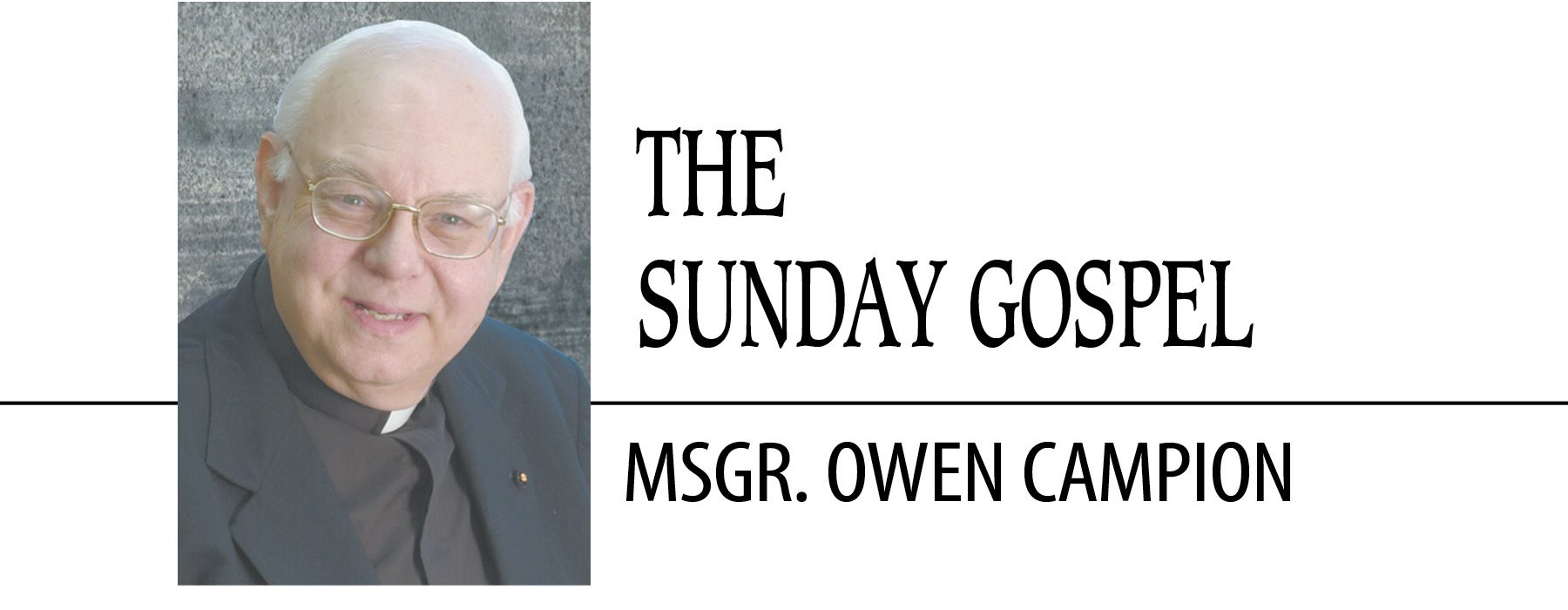May 23, 2020 // The Sunday Gospel
Encounter Jesus as first Christians did: in the Church, through baptism
Feast of the Ascension of the Lord
Matthew 28:16-20
In many dioceses in the United States, this weekend is the liturgical celebration of the feast of the Ascension of the Lord. Other dioceses observe this weekend as the Seventh Sunday of Easter. This reflection will refer to the biblical readings for the feast of the Ascension.
The first reading, from the Acts of the Apostles, is the beginning of Acts. As with the Gospel of Luke, the author addresses Theophilus. The identity of Theophilus is unclear. Who was Theophilus? Was it a proper name? Perhaps it was. Perhaps it was not. Theophilus also was a title, meaning “friend of God.”
In any case, an important fact is that Luke’s Gospel and the Acts of the Apostles are inseparably linked. Acts simply continues the story first given in the Gospel. This is a lesson itself. Salvation in Christ continued after the Ascension through the Church.
When the New Testament was compiled into one set of Scriptures, and as the Church accepted John’s Gospel as the authentic Word of God, John’s Gospel was inserted between Luke and Acts so as not to divide the four Gospels. This process blurred the perception of Acts as the continuation of Luke.
Critical in this reading is the identification given the Apostles, 11 in number since the defection and eventual suicide of Judas. Acts clearly states that the Lord chose the Apostles. His selection was not insignificant or coincidental but done on purpose and with the power of God.
Jesus ascended to heaven, but the Apostles remained. They still needed the wisdom of Jesus. What should they do? They realized that their commission was to “teach all nations,” but people asked questions. For example, would Jesus restore Israel to earthly majesty? Jesus clarified what salvation means and defined the place of baptism.
An angel told the Apostles, staring into the sky, to look around themselves and to carry onward redemption in Christ.
For its second reading, the Church presents the Epistle to the Ephesians. The reading is a prayer that all Christians might find true wisdom in Christ.
St. Matthew’s Gospel provides the last reading. This passage repeats the mission of the Apostles. They were prepared, having been with Jesus, before the Resurrection. Gloriously alive after the Crucifixion, the Lord was with the Apostles once more.
Jesus commissioned them to go into the world, excluding no place or anyone, and to bring all to God by baptizing them in the name of the Father, Son and Holy Spirit. This command not only underscored the role of the Apostles’ task to continue to proclaim God’s mercy, but it revealed to humans the very character of God, the Holy Trinity.
Reflection
For weeks the Church, with great joy and confidence, has proclaimed the Lord’s victory over death in the Resurrection. It has called us to share its rejoicing in the Resurrection and has recalled for us the unconditional response long ago of the first Christians to the fact that Jesus overcame death.
To repeat, the link between Luke’s Gospel and Acts shows that salvation in Christ continued after the Ascension. Jesus did not depart the earth in any final sense with the Ascension.
The unfolding of the divine plan of salvation is shown. Jesus chose the Apostles to preach the Gospel and reconcile all humans with God. They formed the Church far and wide forever to give the message and presence of the Lord. In and through the Church, the Lord lives.
We, in 2020, encounter Jesus just as the first Christians encountered Him, in the Church. Jesus bonds with us in baptism, and if we are faithful to our baptism, through the Church’s sacraments and words, we are forever alive, forever redeemed, forever healed, forever forgiven, forever nourished, guided and forever strengthened.
The best news. Delivered to your inbox.
Subscribe to our mailing list today.






